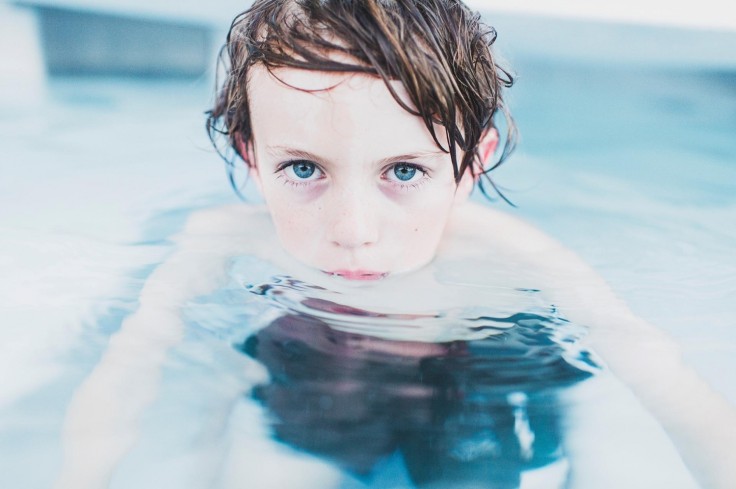
As children frolic in the pool, they may have unintentionally ingested, through mouth or nose, a little bit of the water. This may seem inevitable, but the pool water the kids just drank could make them sick.
According to Dr. Kara Brezinski Clark, Geisinger Primary Care Physician and Doctor of Osteopathic Medicine, chlorine is found in most pools, and swallowing some of it could expose the children to Escherichia Coli or E.coli, norovirus, and parasites like Giardia, Cryptosporidium, and Shigella.
Cryptosporidium or Crypto, in particular, is difficult to kill. Dr. Clark said it is intolerant of chlorine even in a well-maintained and monitored pool. It can also live for days and could be in the pool water that the child accidentally ingests.
Per the Centers for Disease Control and Prevention (CDC), people carry 14 grams of feces into the pool when taking a dip, which doesn't count people who might have diarrhea. People infected with Crypto can experience diarrhea, stomach cramps, nausea, and vomiting for up to three weeks.
Unfortunately, Crypto is getting more widespread. The CDC reported that outbreaks have doubled since 2014, per Geisinger.
The little swimmer could be at risk for any illnesses
Fecal matter is not the only thing you're swimming with when taking a dip in the pool, as there's a lot of pee in it too. Public pools contain approximately 20 gallons of urine, while a smaller residential pool likely contains about two gallons which equates to a small percentage but is enough to cause some worry.
Dr. Clark stated that urine, sweat, and body oils react with the chlorine in pool water to establish strong-smelling chemical compounds that are dangerous in large amounts. Such compounds, in some cases, haven't been found in large quantities, but it's still unhealthy. To prevent sickness, avoid peeing in the pool. You can shower before entering the pool to rinse sweat, oils, and fecal matter.
On the other hand, Dr. Daniel Cichi of Doctor4U stated that swallowing a small amount of pool water is relatively harmless, but it's essential to avoid doing so as there might also be the presence of a parasite.
According to Yahoo News, Dr. Cichi warned that if children drink a large amount of pool water, there's a big chance that they might experience mild chlorine poisoning.
Read Also : 2-Year-Old Girl Dies After a Tragic Paddling Pool Accident in Ireland; Devastated Community Pays Tribute
Making children safe at all times
Another ailment that children can pick up at the pool is the swimmer's ear, an infection usually treated with prescription eardrops. To prevent a swimmer's ear, kids must be encouraged to don earplugs in the pool. After swimming, the child's outer ears should be dried by gently wiping with a soft towel or using a hair dryer. The hair dryer should be on the lowest setting and held at least a foot, or about 30 centimeters away from the ear.
Another danger for kids in the pool is dry drowning. According to Joe Mulligan from the British Red Cross, dry drowning is also known as secondary drowning and poses a danger that is not commonly known to many parents. A small amount of liquid fluid can go to the lungs, and the lungs can become ineffective after some time.
Exposure to chlorine in the pool might also result in the child having red eyes, per the Mayo Clinic. Rinse your child's eyes with a sterile eyewash or an artificial tears solution to ease discomfort and lessen the redness after swimming. To avoid having red or puffy eyes, encourage your child to wear goggles while swimming.
Related Article : Facts About Dry Drowning That Parents Should Know